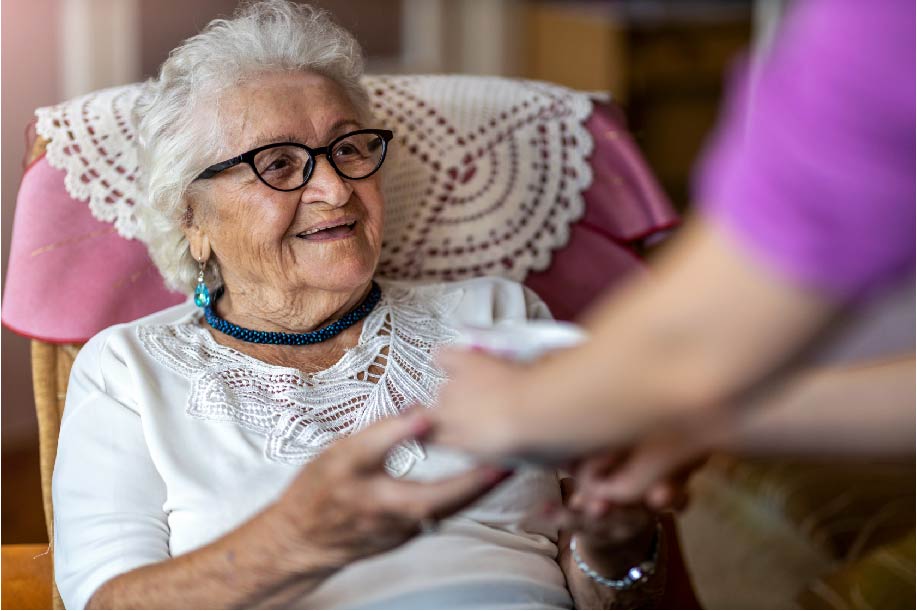For all people, communication is vital to building and keeping relationships due to the fact that it is exactly how we share needs, problems, and connect to each other. Interaction is more than words-- a subtle combination of perspective, intonation, facial expressions, and also body language. Inevitably, individuals with Alzheimer's will certainly have difficulty connecting in nearly every facet. For in-home caregivers, it is very important to comprehend what communications adjustments can happen throughout the condition, how to reply to these modifications, as well as exactly how to successfully connect as dementia proceeds.
Adjustments in Interaction as Dementia Proceeds
Alzheimer's condition is a modern form of mental deterioration with symptoms of the illness aggravating gradually. People with Alzheimer's experience differences in interaction that can make talking and following instructions frustrating for both the caretaker as well as the individual with dementia.
Problems in communicating with Alzheimer's suffers can include:
Repetition of stories
Describing items rather than identifying them
Speaking much less
Depending on hand motions as well as gestures more than words
Problems recalling the right words
Lost train of thought
Unorganized speech
In the later phases of the disease, individuals may depend only on nonverbal communication, utilizing vocal noises or facial expressions.
Describing items rather than identifying them
Speaking much less
Depending on hand motions as well as gestures more than words
Problems recalling the right words
Lost train of thought
Unorganized speech
In the later phases of the disease, individuals may depend only on nonverbal communication, utilizing vocal noises or facial expressions.
10 Ways to Communicate Effectively with Dementia Patients
In each stage of the illness, communicating with your patient will have unique challenges. Due to the fact that Alzheimer's as well as associated types of dementia impact each person differently, presumptions can not be made concerning the interaction capabilities of an individual.
Typically, these pointers can help friends and family members connect better with aging seniors as the disease advances.
Typically, these pointers can help friends and family members connect better with aging seniors as the disease advances.
1. Don't Hesitate to LAUGH | 2. Communicate Non-Verbally |
| A quick witted story can lighten the mood, minimize tension, and help patient and caregiver form a more trusting bond. | E-mails, phone calls, and body movement are all great ways to show somebody you care without requiring a prompt interaction response. |
3. Don't Shy AwayYour relationship is necessary to your loved one that is going through a bumpy ride. Being straightforward regarding your issues and feelings will help both of you handle a difficult medical diagnosis. | 4. Prevent Arguing, Criticizing, or CorrectingWith time, an individual with dementia will believe their own version of reality. Pay attention and try to understand their opinions, but try to avoid arguments or addressing an error in speech |
5. Prevent Open-Ended Inquiries
Ask basic "yes" or "no" questions to help them make decisions less complicated, removing confusion and disorientation.
6. Speak Gradually and Plainly, Giving Simple Instructions
It is helpful to handle more difficult challenges one thing at a time to avoid confusing your loved one.
7. Your Eyes Show You Care
Maintaining eye contact is a simple way to show your loved one that you care about them and that you're listening to what they have to say.
8. Minimize Distractions, Chose a Quite Setting for Conversations
The focus of the conversation will be more easily conveyed, and you'll be able to provide your loved one the chance to consider and ask questions.
9. Make Introductions Facing Your Patient
Those who suffer from dementia eventually begin to not remember names or faces. Sometimes introducing yourself will help them be more relaxed. Approaching them from the front helps in case their field of vision fails over time. They may not see you coming from behind and could be startled unless approached straight on.
10. Understanding Your Role in Their Well-Being
At some point your loved one could forget your name and face, but the time you spent being present with them, and your friendship with them play a vital role in their well-being. A little love goes a long way




 RSS Feed
RSS Feed